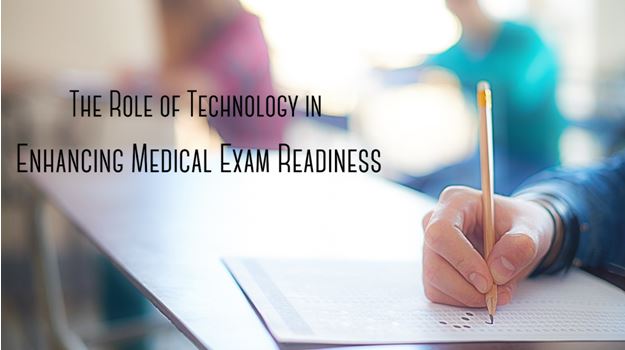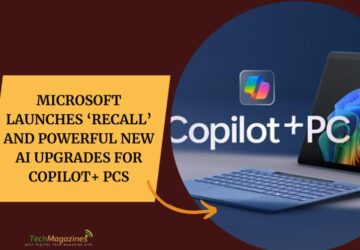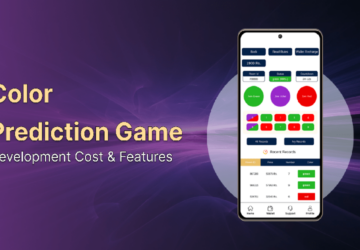Passing big licensing and certification exams is really important for people wanting to become doctors or nurses. These rigorous tests assess whether graduates possess the necessary medical knowledge and skills to ensure the safe treatment of patients. Considering the stakes involved, it’s crucial that new clinicians are well-prepared and competent. Recently, new technologies have been reshaping how students learn and prepare for these critical, career-defining exams.
Exciting digital tools provide more efficient, personalized, and engaging ways to prep compared to just using textbooks and lectures. Students can now use sophisticated computer simulations and virtual reality to gain hands-on practice. Artificial intelligence software designs custom study plans tailored to each person’s needs.
Online platforms make interactive learning materials easily available to all. Data analysis tracks progress and finds gaps to work on. Although technology is improving preparation, the importance of human connections through peer support and mentoring remains unchanged. With thoughtful innovation, emerging education technologies have huge potential to equip future clinicians with what they need for 21st-century healthcare.
Realistic Simulations for Hands-On Practice
Many medical schools now use advanced simulation centers. Students can practice their skills on human-like mannequins that mimic real patients. Virtual reality headsets also let students experience realistic medical situations. This lets them gain skills safely without practicing on actual patients.
The high-tech mannequins can breathe, blink, bleed, and make heart sounds. Some even give birth! The virtual reality systems recreate realistic 3D surgical procedures and emergency scenarios. These super cool tools help prepare students for anything they might face on the exams.
Online Learning Platforms Make Studying Easier
Preparing for medical exams is often a difficult and stressful endeavor. The vast amount of information, the complexity of the subjects, and the high stakes of exams like the NCLEX can be overwhelming. Traditional study methods, such as immersing oneself in extensive textbooks, can exacerbate the challenge, making it difficult to stay engaged and retain information.
However, the advent of new online education platforms has revolutionized this process. Now, students have access to quality study resources, including a free NCLEX practice test, directly through their laptops or mobile devices. These resources provide a range of challenging NCLEX questions and answers, facilitating a more interactive and effective study experience.
Top universities have contributed to this trend by offering online medical courses that feature engaging interactive videos and quizzes, including practice NCLEX questions and answers. This transformation not only enhances the engagement of studying but also improves accessibility. Students can access these valuable resources from anywhere, at any time, simplifying the challenges of exam preparation and paving the path to success.
Research shows that adding online learning to traditional classes can improve exam scores by 10-15%! Leading platforms use special techniques like illustrations and mini-games that make the material easier to remember.
Artificial Intelligence Creates Personalized Study Plans
Artificial intelligence (AI) is changing how students prepare by creating customized study schedules tailored to each person’s unique needs.
Initially, AI analyzes the topics on which each student requires more practice. Then it designs a schedule focusing on their weaker areas to get them up to speed. The AI even acts as an automated tutor, giving feedback to help students improve.
Students who utilize AI-driven study plans perform 15-20% better on exams compared to those following a generic approach. The technology pays attention to each person’s strengths and weaknesses to help maximize their chances of success.
Immersive Experiences with Virtual and Augmented Reality
With virtual reality (VR) headsets, students can be transported right onto hospital floors and operating rooms for lifelike practice! Augmented reality (AR) uses goggles to overlay digital information onto real-life environments.
VR allows endless practice of procedures and surgeries in a risk-free setting. AR lets students visualize anatomy and concepts in 3D. These futuristic technologies engage students far beyond textbooks or lectures.
Medical schools will soon start using VR and AR regularly. These immersive tools are becoming more affordable and will better prepare the next generation for clinical practice after passing their exams.
Online Communities for Shared Learning
Social media groups, forums, and chat platforms enable students worldwide to collaborate and learn from each other.
Students can exchange tips on textbooks, practice questions, and study habits. Seniors share experience to guide juniors in effectively preparing for exams. Supporting each other builds community and accountability.
Resources created by students, for students, such as the well-received StudynetworkFM and MedTruth communities, collectively contribute to preparing the next generation of doctors and nurses.
Mobile Apps for Learning On-the-Go
Fun new mobile apps allow busy medical students to study a bit whenever they have free time between classes or duties.
While commuting or waiting in line, students can use apps to take practice exam questions, review diagrams, or play medical trivia on their phones. Many popular study apps are free or inexpensive.
Students report that consistent use of exam preparation apps significantly enhances their knowledge retention. Being able to study on the go from anywhere makes maintaining focus and consistency easier.
Performance Tracking for Focused Improvement
New technologies can track each student’s study habits and practice test results. This data identifies weaker areas needing focus.
Analytics pinpoint the topics, question types, and resources each student needs to spend more time on. Students use these insights to customize their study schedule in the weeks and months leading up to the big exam.
Research shows students who enhance their preparation by utilizing performance data perform better on medical exams than their peers.. Tracking progress helps allocate limited study time most efficiently.
Remote Proctoring for Accessible Exam Practice
With remote proctoring, students can take mock licensing exams online from anywhere while preventing cheating. Proctors verify IDs and monitor test-takers through the webcam.
This makes exam practice using websites or apps more convenient. Instant results on practice tests allow students to learn from mistakes and fill knowledge gaps from the comfort of home.
Although technical issues can pose challenges, remote proctoring enhances access to valuable exam preparation resources for all students.
The future of medical education looks bright with all these new technologies! They help students prepare smarter, collaborate better, and gain real-world skills so they can provide excellent patient care after passing their exams.
Wrapping Up
In conclusion, modern technology-enabled, competency-focused, and personalized exam preparation methods can develop highly qualified medical graduates ready to tackle today’s healthcare challenges. Medical knowledge expands rapidly, and passive textbook learning is no longer sufficient.
Innovative education technologies allow for more immersive, applied, and tailored learning experiences that deepen comprehension of core clinical skills and concepts essential for safe, high-quality patient care. However, supportive human connections through peer collaboration remain just as crucial.
Combining the human community with smart technological tools will continue driving positive transformations in medical education. Through thoughtful innovation, emerging solutions such as AI-adaptive instruction, virtual reality simulation, and performance analytics hold enormous potential to improve both the learning process and outcomes.
Exam prep is just one domain being changed for the better. Overall, new technologies thoughtfully designed around student needs will become integral in training compassionate, competent, future clinicians able to provide holistic care and improve wellbeing across diverse populations. The future looks bright for medical education.








